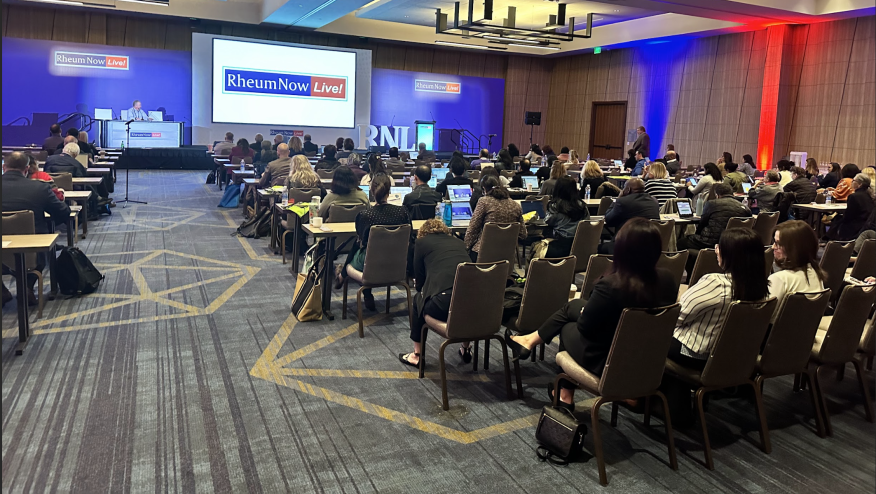What are the Early Stages of Lupus? Save

Incomplete lupus? Undifferentiated connective tissue disease? Pre-clinical autoimmune disease?
During the lupus pod at RheumNow Live 2024, Dr. David Karp discussed the spectrum of autoimmune disease and the confusing terminology that is used with the complex world of early autoimmune disease. He cautioned against the traditional use of phrases such as incomplete lupus or undifferentiated connective tissue disease, which are heterogeneous and poorly defined. Incomplete lupus, initially termed by Greer and Panush in 1989, has referred to patients with lupus phenotype but not meeting the diagnosis, but no strict or rigorous definition has been established.
Dr. Karp favors the use of a scheme of lupus "stages." Stage 1 notes non-specific autoantibodies and immune system dysregulation without clinical symptoms. Stage 2, traditionally in the "incomplete lupus" category, notes isolated signs and symptoms including skin, joints, cytopenias or hypocomplementemia. Stage 3 includes those patients with classified systemic lupus erythematosus and stage 4 indicates irreversible tissue damage. Stages 1 and 2 are the ideal window for screening and prevention of early disease. This framework mirrors the stages of Type 1 Diabetes, which defines stage 1 (genetic risks) and stage 2 (pre-symptomatic disease with autoantibody development). Dr. Karp cautions that staging should be driven by objective clinical features and the molecular pathophysiology of the disease. These definitions can be used to build an international consensus on a criteria for early/pre-clinical lupus disease to improve our ability to classify, define and study this population.
The classic 2003 Arbuckle study in New England Journal of Medicine describes the development of autoantibodies prior to clinical onset. Dr. Karp also provided molecular data of inflammatory cytokines preceding diagnosis by several years. Ongoing research is underway on the Lupus Classification Risk Immune Index (LCRII) which is hoping to risk stratify patients in stage 2 for the progression to classifiable stage 3 disease.
Once we define the early stages of lupus, the next step will be to help understand if we can intervene early to prevent, delay or modify lupus erythematosus. These answers are not yet known, but the SMILE (Study of Anti-Malarials in Incomplete Lupus Erythematosus) study is currently studying hydroxychloroquine versus placebo in this population.
Join The Discussion
It is a very interesting point, specially regarding treatment because one of the interrogants is if the early intervention avoid the disease progression to late stage










If you are a health practitioner, you may Login/Register to comment.
Due to the nature of these comment forums, only health practitioners are allowed to comment at this time.